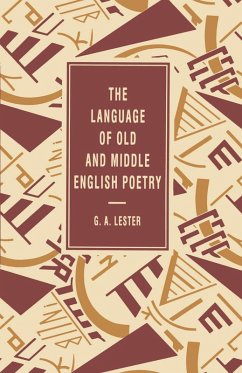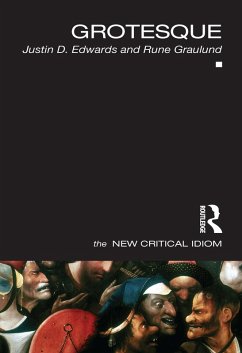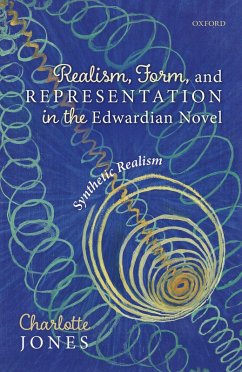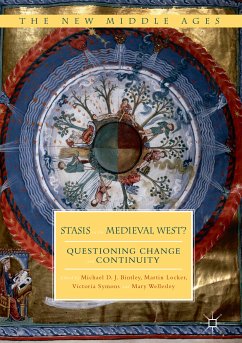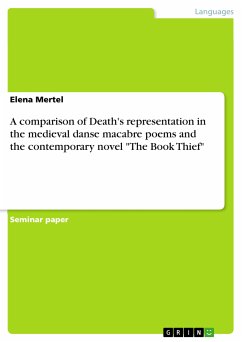
A comparison of Death's representation in the medieval danse macabre poems and the contemporary novel "The Book Thief" (eBook, PDF)
Sofort per Download lieferbar
Statt: 9,99 €**
5,99 €
inkl. MwSt. und vom Verlag festgesetzt.
**Preis der gedruckten Ausgabe (Broschiertes Buch)
Alle Infos zum eBook verschenkenWeitere Ausgaben:

PAYBACK Punkte
0 °P sammeln!
Seminar paper from the year 2015 in the subject Literature - Comparative Literature, grade: 1,7, University of Dusseldorf "Heinrich Heine" (Anglistik und Amerikanistik), course: Manifestations of Cultural Concepts in Medieval English Literature, language: English, abstract: To find answers to the following questions I will examine two representations of Death in literature in the following essay. First, I will refer to the medieval motif of the danse macabre with special attention on the German Totentanz and the French danse macabre poems that were freely translated into English by the monk Jo...
Seminar paper from the year 2015 in the subject Literature - Comparative Literature, grade: 1,7, University of Dusseldorf "Heinrich Heine" (Anglistik und Amerikanistik), course: Manifestations of Cultural Concepts in Medieval English Literature, language: English, abstract: To find answers to the following questions I will examine two representations of Death in literature in the following essay. First, I will refer to the medieval motif of the danse macabre with special attention on the German Totentanz and the French danse macabre poems that were freely translated into English by the monk John Lydgate in the beginning of the 15th century. Already as early as in the Old Testament death was represented by the apocalyptic horsemen; In early Norse mythology by the goddess of Death named Hel and in the Middle Ages by skeletons that rose from their graves, as well as by the image of the Grim Reaper with his black cape and a scythe, which is still popular nowadays. What do those figures have in common? In what aspects do they differ? And in how far have the common interpretation of personified Death changed over the centuries?
Dieser Download kann aus rechtlichen Gründen nur mit Rechnungsadresse in A, B, BG, CY, CZ, D, DK, EW, E, FIN, F, GR, HR, H, IRL, I, LT, L, LR, M, NL, PL, P, R, S, SLO, SK ausgeliefert werden.





